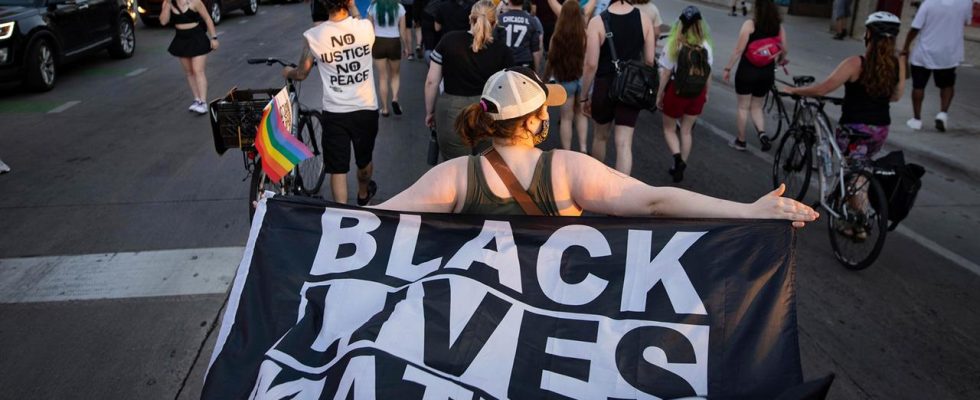Ten years ago, the hashtag #BlackLivesMatter appeared. The protest movement was born. Support has been waning since its peak in 2020 following the death of George Floyd. What’s left?
Scorching afternoon heat hangs over deserted Jefferson Square Park in Louisville, Kentucky. A few homeless people are camping under the shady trees. Only a green sign with golden letters reminds us that tens of millions of angry people protested against racism and police violence on this square for weeks in early summer 2020.
Nicole Robinson was only indirectly involved. She grew up not far from here, in the West End, the black part of Louisville. “My friends, all of us, protested 20, 30 days in a row. It was important to me at the time to give my friends psychological support,” she says.
The demonstrations were preceded by the agonizing death of African American George Floyd in Minneapolis. And a few weeks earlier, the death of Breonna Taylor, a young black woman from Louisville, who was shot dead by police officers during a search of her home.
demonstrations also against social injustice
That could have been me back then, says the young woman with the dreadlocks. As a doula – birth attendant – of the organization Black Birth Justice, she fights on the front line every day. Maternal mortality among black women is almost four times higher than among white women. Social injustice, discrimination based on skin color and police brutality against people of color – these were the themes of the Black Lives Matter movement.
Chanelle Helm, an activist in Louisville, also took to the streets at the time. This morning, the social worker is already dealing with three emergencies: a case of domestic violence, a drug overdose, and the death of a prison inmate. The 46-year-old said it was not surprising that the movement found so many followers at the time. “Not only because of the injustice in the police force, but also because of the injustice in the status quo.”
In fact, in 2020, a disproportionately large number of black people were affected by the corona pandemic, losing their livelihood, their relatives or even their own lives. In addition, police violence was increasingly captured on video for the whole world to see.
Black Lives Matter celebrated successes
The protests did not only have consequences in Louisville: Breonna Taylor’s family was paid around twelve million dollars in damages. The chief of police there changed several times and there were police reforms. For example, the controversial “no-knock warrants”, the unannounced house searches, have since been banned. In many places, police officers are now required to wear body cameras and undergo de-escalation training.
But above all, a new consciousness was established in American society, says Chanelle Helm. “Most people wanted robust legal systems to emerge. People’s language has changed. We need it to create awareness.” People now understand what police officers are allowed and not allowed to do.
Racism is still anchored in society
In Washington and other cities, so-called street murals were created, street paintings that remind of the movement in huge yellow letters. For many Americans, this was an impetus to deal with systemic racism in the USA. Because it is still firmly anchored in society, according to Amber Duke of the American Civil Rights Union ACLU in Louisville.
“Race-based inequality and white supremacy affect every single aspect of life: education, the criminal justice system, housing, poverty – everything,” she says. This is deeply rooted in the history of slavery in this country.
Activists also painted the words “Black Lives Matter” on 5th Avenue in New York.
Scandal overshadowed the movement
According to a study by the Pew Research Center, support for the movement has since plummeted. At that time it was two thirds, today only around half of the US population is behind “black liberation”.
The network also faced severe criticism. Not only from Republicans, who accused the activists of violence, but also from within their own ranks. The founders of the movement are said to have embezzled or at least squandered donations, for example by buying two luxury properties in Los Angeles and Toronto for $12 million. Cicley Gay from the Global Network Foundation promises improvement. “Whenever there is progress, there are also critics,” she says. They would have to make sure to provide transparency and accountability.
supporters keep moving
However, Amber Duke of the civil rights organization ACLU is optimistic that the protest movement has started processes. “It’s happening more slowly than I would like, but I feel like we’re moving in a new direction.”
And Nicole Robinson, who works as a doula for black mothers and their babies, also believes that there is progress. The seeds have been sown, she says. It will only take a while for anything to grow.

